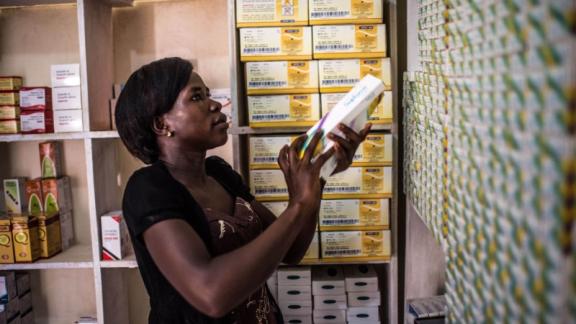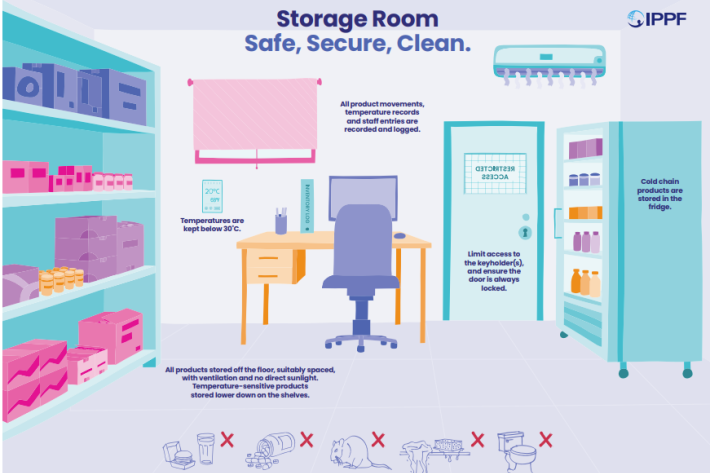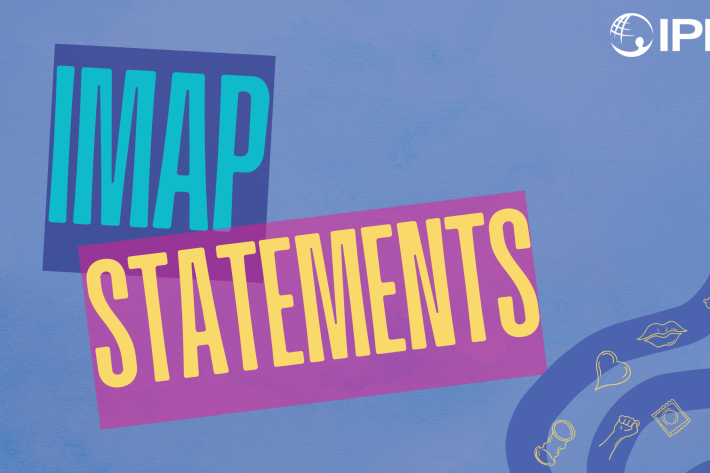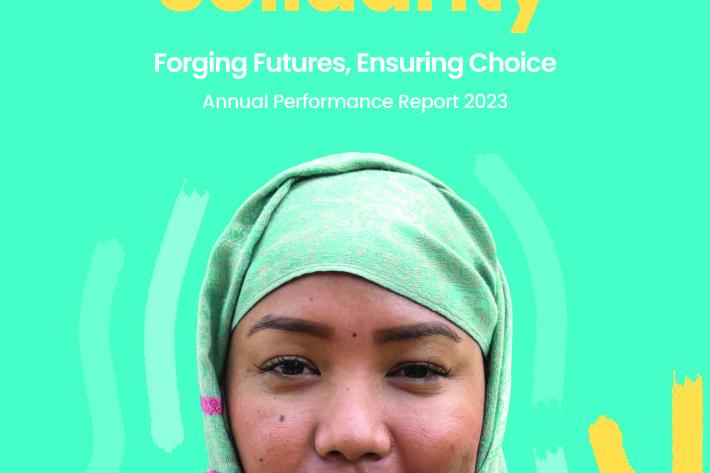Spotlight
A selection of resources from across the Federation
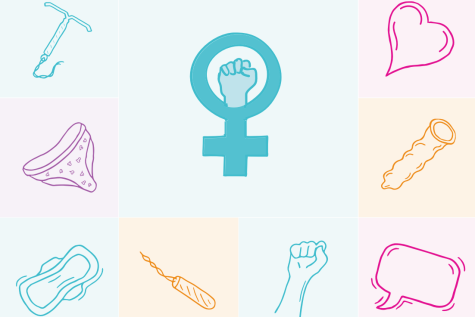
Technical Brief: Designing and Delivering Inclusive, Rights-Based Sexual and Reproductive Healthcare to Transgender and Gender Diverse People
This technical brief outlines key recommendations across several sexual and reproductive health service areas to promote access to inclusive care for transgender and gender diverse people.
Filter our resources by:

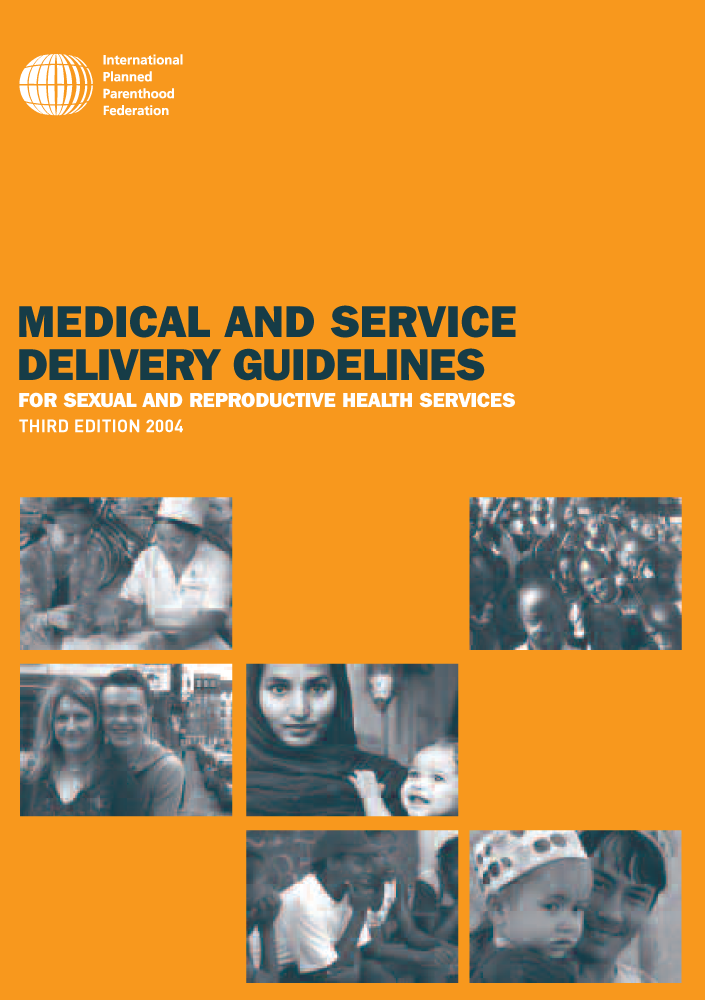
| 06 June 2012
Medical and Service Delivery Guidelines
IPPF guidelines for practitioners on delivering sexual and reproductive health services.
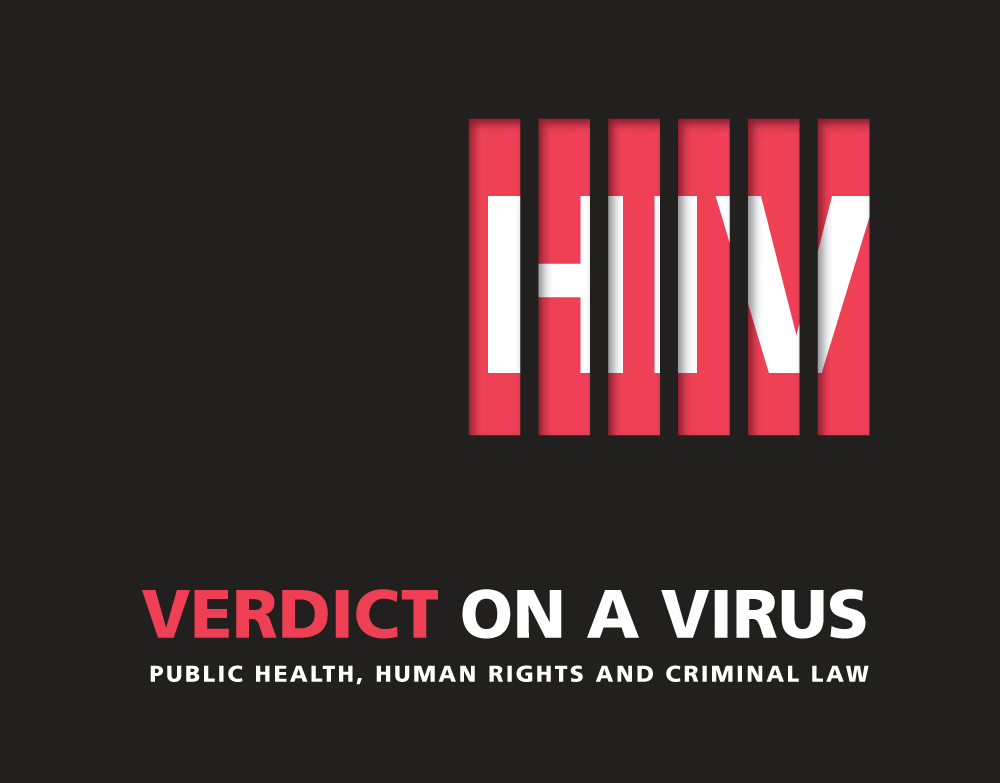
| 06 June 2012
Verdict on a Virus: Public health, human rights and criminal law
Verdict on a Virus is based on the voices of leading legal and judicial experts, UN advisors and people living with HIV. It provides examples from around the world which strengthen our understanding of the criminalization of HIV transmission and exposure.
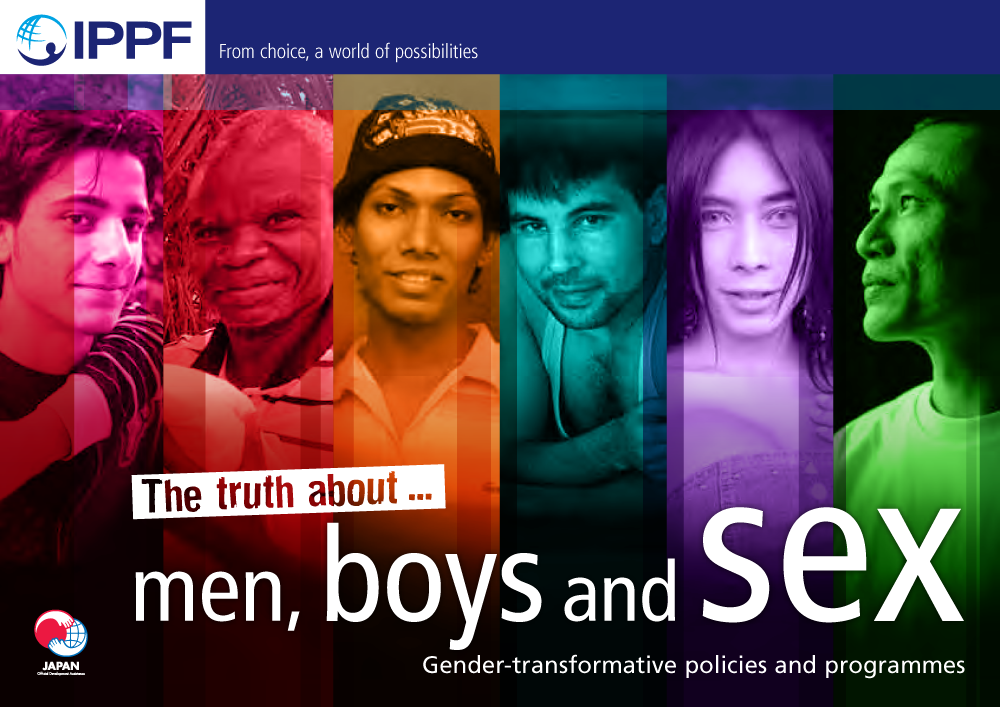
| 06 June 2012
The Truth About Men, Boys and Sex: A gender-transformative guide
Over the last 25 years, much has been learned about HIV – its properties, its management and its tendency towards the path of least resistance in communities already facing poverty and prejudice. Globally, that line runs through some of the world’s least powerful communities: the poorest, most disadvantaged, stigmatized and under-developed groups, whose members carry an increasingly disproportionate share of the world’s HIV burden. In many countries, young women are three times more likely to be HIV positive than young men while in other regions of the world men are at the forefront of the epidemic. With this dynamic nature of HIV, it is imperative that every response is characterized by its ability to be increasingly relevant and meaningful. However, irrespective of the country or region, approaches that actively seek to transform gender norms and inequality need to find a stronger foundation in the work of sexual and reproductive health and HIV programmes. The essence of these programmes must empower young women and girls and provide supportive legislative frameworks. But concurrently they should ensure that men and boys – with different behaviours and sexual orientations – can find the avenues to transform their lives as individuals, partners, husbands, fathers, sons and brothers. Sexual Rights; An IPPF Declaration underlines this approach and identifies the rights of everyone to sexual autonomy, non-discrimination and choice. The IPPF Japan Trust Fund for HIV/AIDS was established in 2000 to strengthen and build the capacity of IPPF Member Associations and enable them to carry out effective, innovative and comprehensive HIV programmes. A key part of their distinctive nature is that they are based on the specific needs of individual countries and localities. As a key signatory to The Code of Good Practice for NGOs Responding to HIV/AIDS, IPPF promotes this needs and rights-based approach that has linked HIV and sexual and reproductive health and rights responses and has focused on the realities of people’s lives – the lives of men and women who are particularly vulnerable to or at risk of HIV. This publication illustrates what IPPF and its Member Associations have achieved through their energetic activities. This unique combination of case studies and interviews from six countries in Africa, Asia and Latin America – with the opinion pieces penned by experts in their field – serves as a reminder that progress on the rights of women and girls is intimately linked to ensuring that men and boys are equal partners in this dialogue. The truth about safeguarding the sexual and reproductive health of women and girls necessitates that men and boys are actively encouraged to protect their own health.
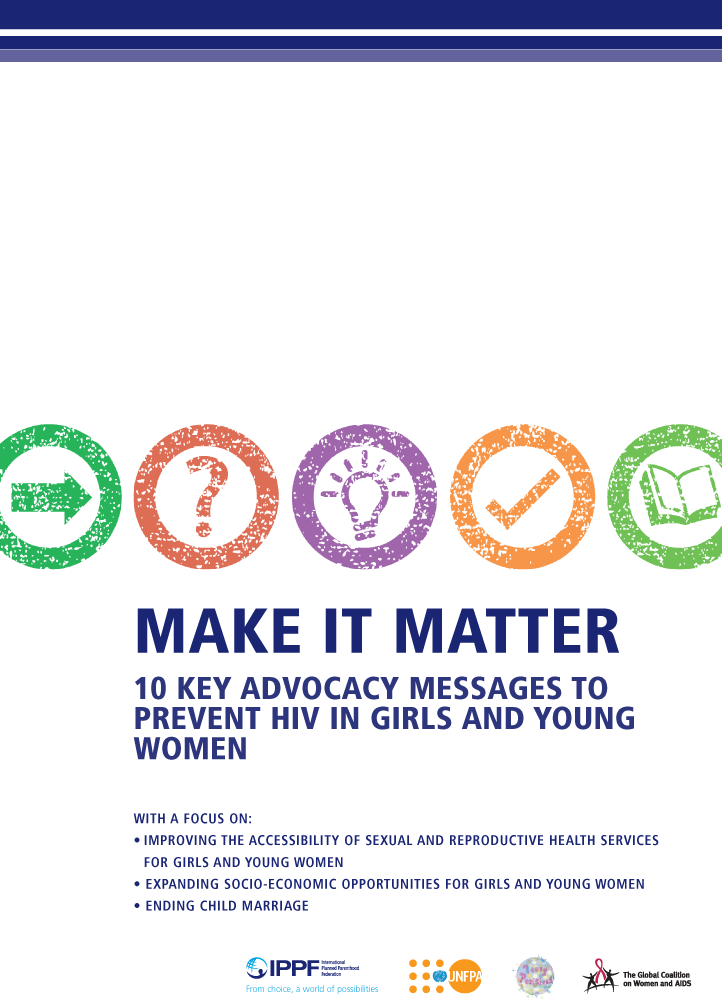
| 06 June 2012
Make it Matter: 10 key advocacy messages to prevent HIV in girls and young women
This advocacy guide focuses on 3 goals that evidence shows to be part of an effective response to HIV prevention for girls and young women. These goals are: improving the accessibility of sexual and reproductive health services; expanding socio-economic opportunities; and ending child marriage.
| 06 June 2012
A Window into a World: HIV risk and vulnerability
The photographs in this journal are educational and enlightening, explicit and enigmatic, moving and disturbing, beautiful and optimistic. This glimpse into a handful of lives paints a picture of life, love, learning and living with HIV. They provide a window into a world that is often neglected or hidden from our sight. A world of men and women who are particularly vulnerable to or at risk of HIV.
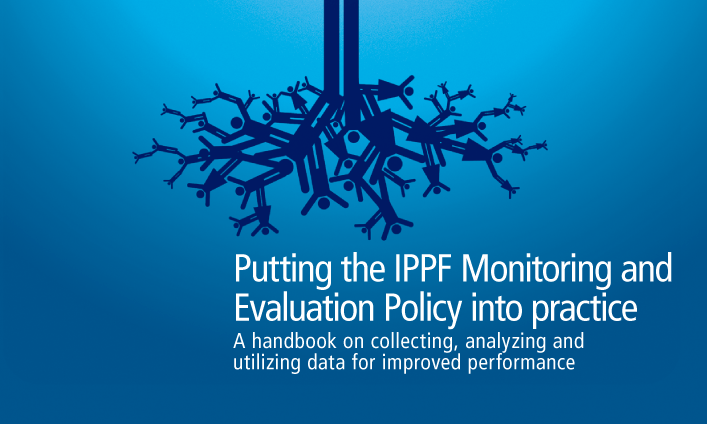
| 29 May 2012
Putting the IPPF Monitoring and Evaluation Policy into Practice: A handbook
| 29 May 2012
IPPF Strategic Framework: 2005 - 2015
The product of a Federation-wide consensus, this framework brings together the ideas and experience of IPPF Member Associations, senior volunteers, Regional Offices and Central Office, and has been approved by the Governing Council. By combining an understanding of our past with a vision for our future, this new plan presents a 'framework of opportunity' that Member Associations can interpret to develop the most appropriate response to specific sexual and reproductive health challenges. The ‘Strategic Framework’ is not intended to impose a rigid set of rules or constraints. Rather, it embraces the diversity of situations Member Associations and regions face. While providing this flexibility, the framework unites the Federation in a common vision on which we are compelled to act if we are to meet the needs of women, men and young people throughout the world.
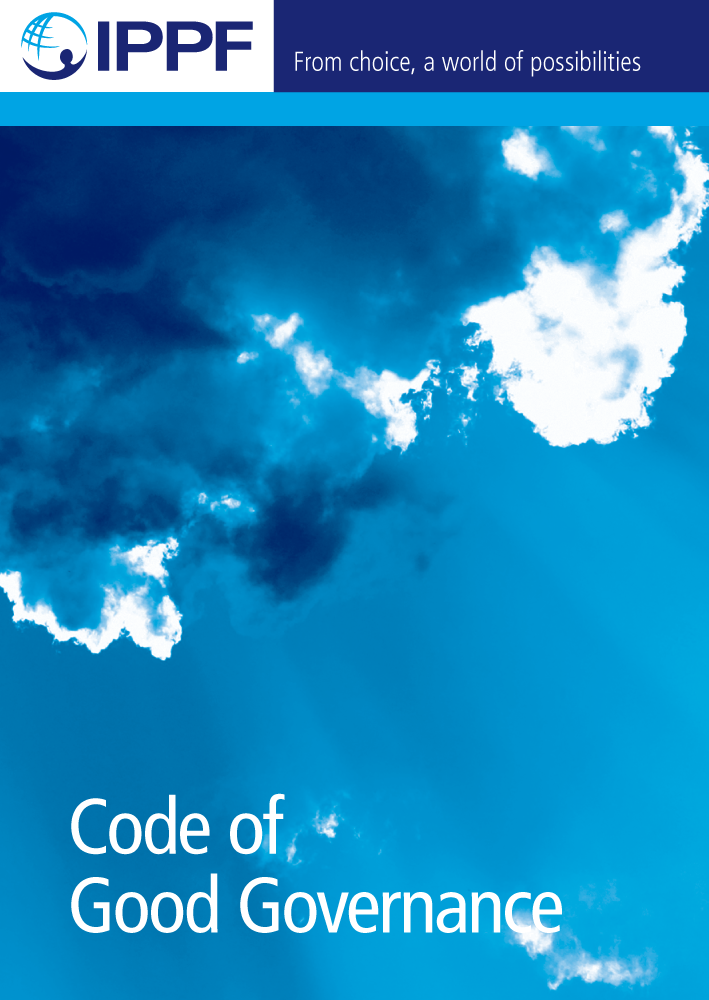
| 28 May 2012
IPPF Code of Good Governance
This Code of Good Governance was developed by a Task Force set up to strengthen volunteering and governance in IPPF. The 7 principles included in the Code represent good practice in governance and should be upheld and promoted by all individuals serving on governing bodies of all IPPF Member Associations, Regional Offices and Secretariat. Good governance is not an end in itself, but is central to ensuring that the organization is in a position to pursue its mission not only today but also in the future. This requires strategic thinking, leadership, courage and care. IPPF is convinced that by fully applying these principles in practice, the federation will make the movement stronger and more effective. To govern well is not something learned once and remember for always: it is an ongoing effort which requires constant attention. Adherence to the principles in the Code will help to strengthen the communities in which Member Associations work, and will contribute to a stronger and more accountable civil society.
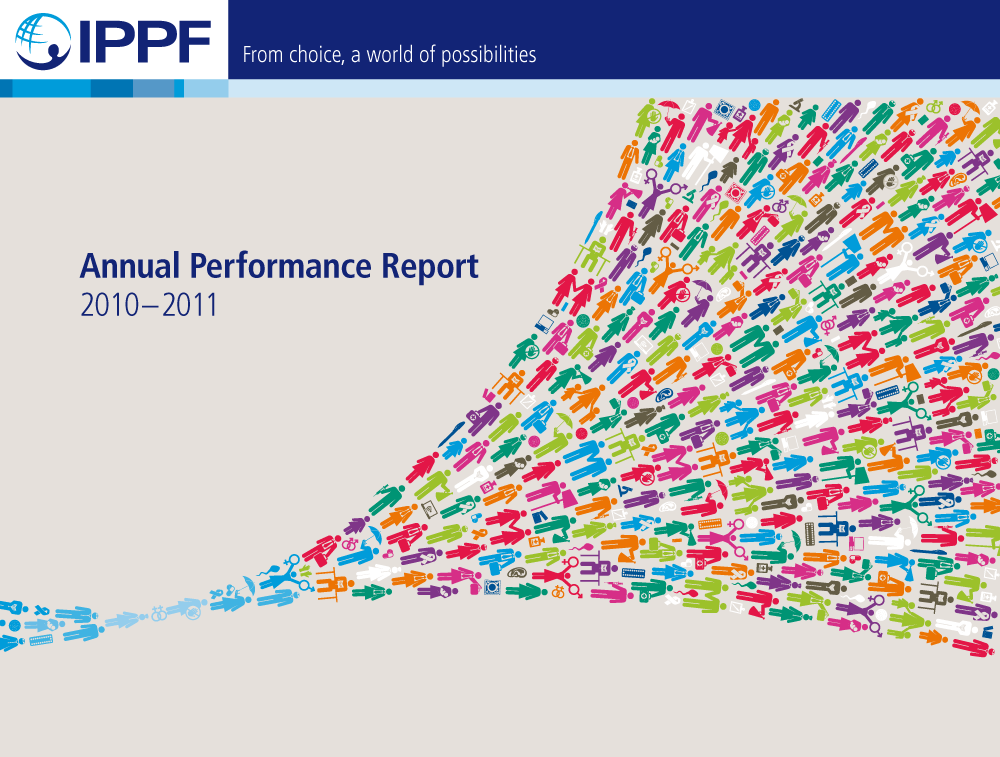
| 11 May 2012
Annual Performance Report 2010-11
This report opens with a review of the status of the Millennium Development Goals most related to IPPF’s work, and is followed by an analysis of IPPF’s performance. It shows that between 2005 and 2010, Member Associations' provision of SRH services has increased significantly, with the majority being delivered to poor and vulnerable clients and young people The Federation's financial strategy ensures that more money goes to countries that have the greatest needs, and evidence from an assessment on value for money confirms that the majority of Member Associations perform well, both in delivering IPPF’s Strategic Framework 2005–2015 and in organizational effectiveness.
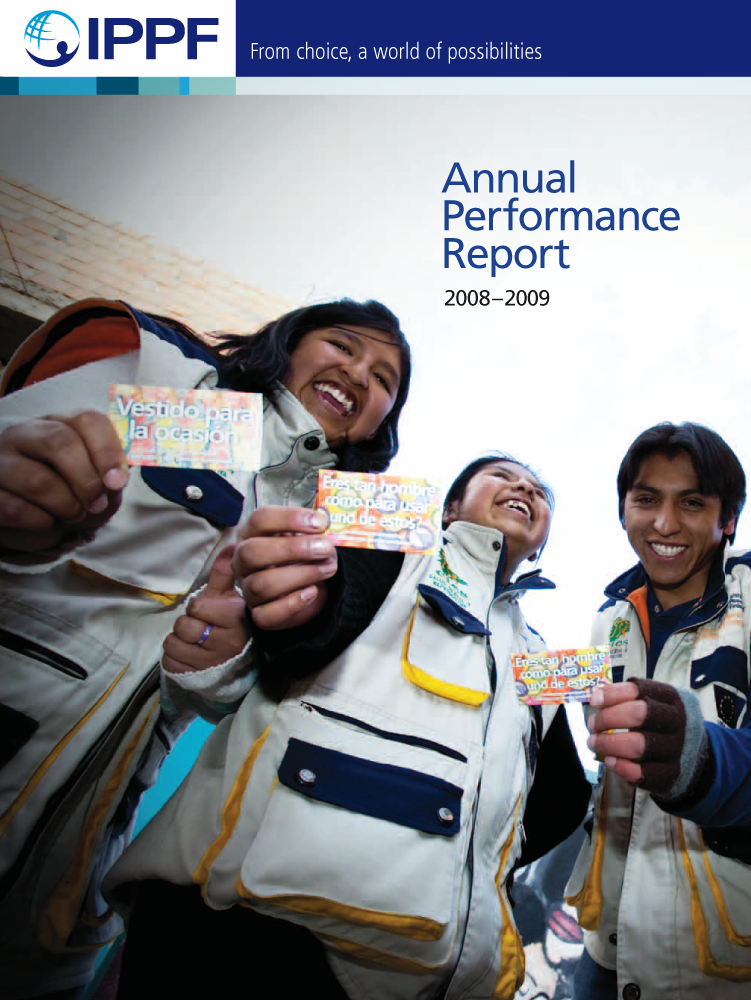
| 11 May 2012
Annual Performance Report 2008-09
This year’s Annual Performance Report includes case studies highlighting the difference IPPF makes to young people’s lives, our global indicators results, and key initiatives in our 4 supporting strategies.
Pagination
- First page
- Previous page
- …
- 32
- 33
- 34
- 35
- 36
- …
- Next page
- Last page







